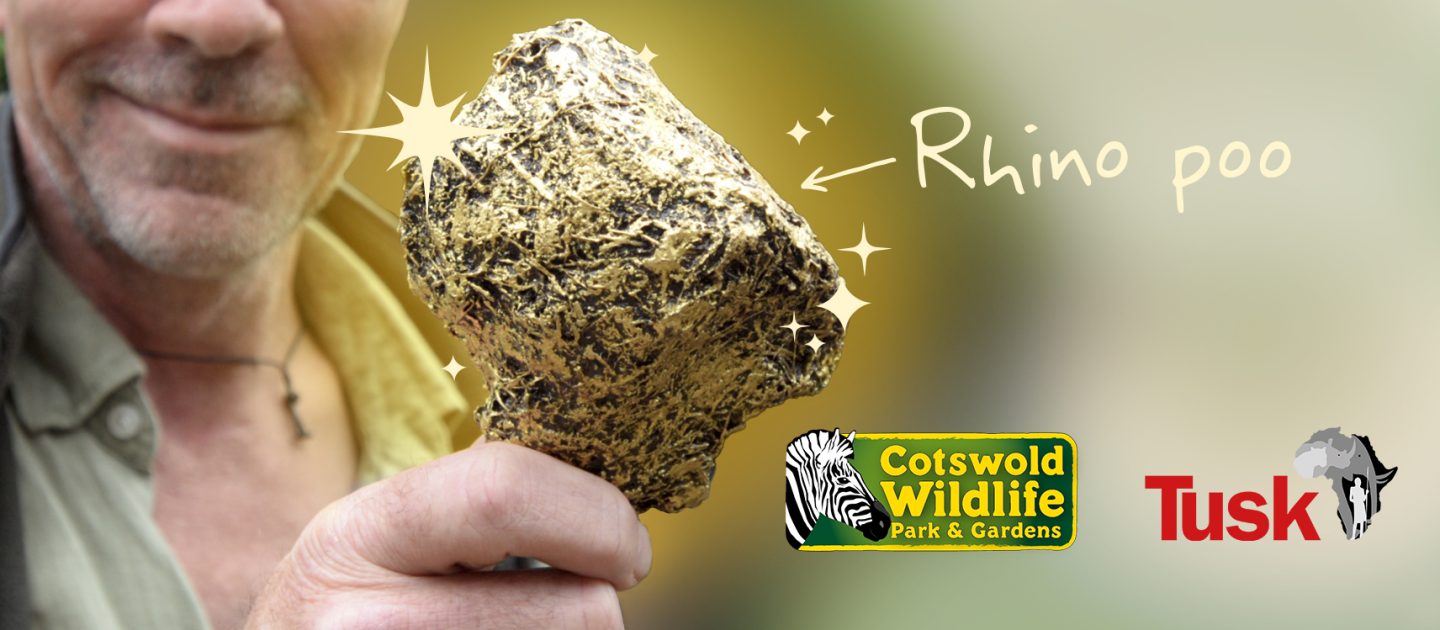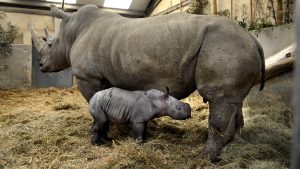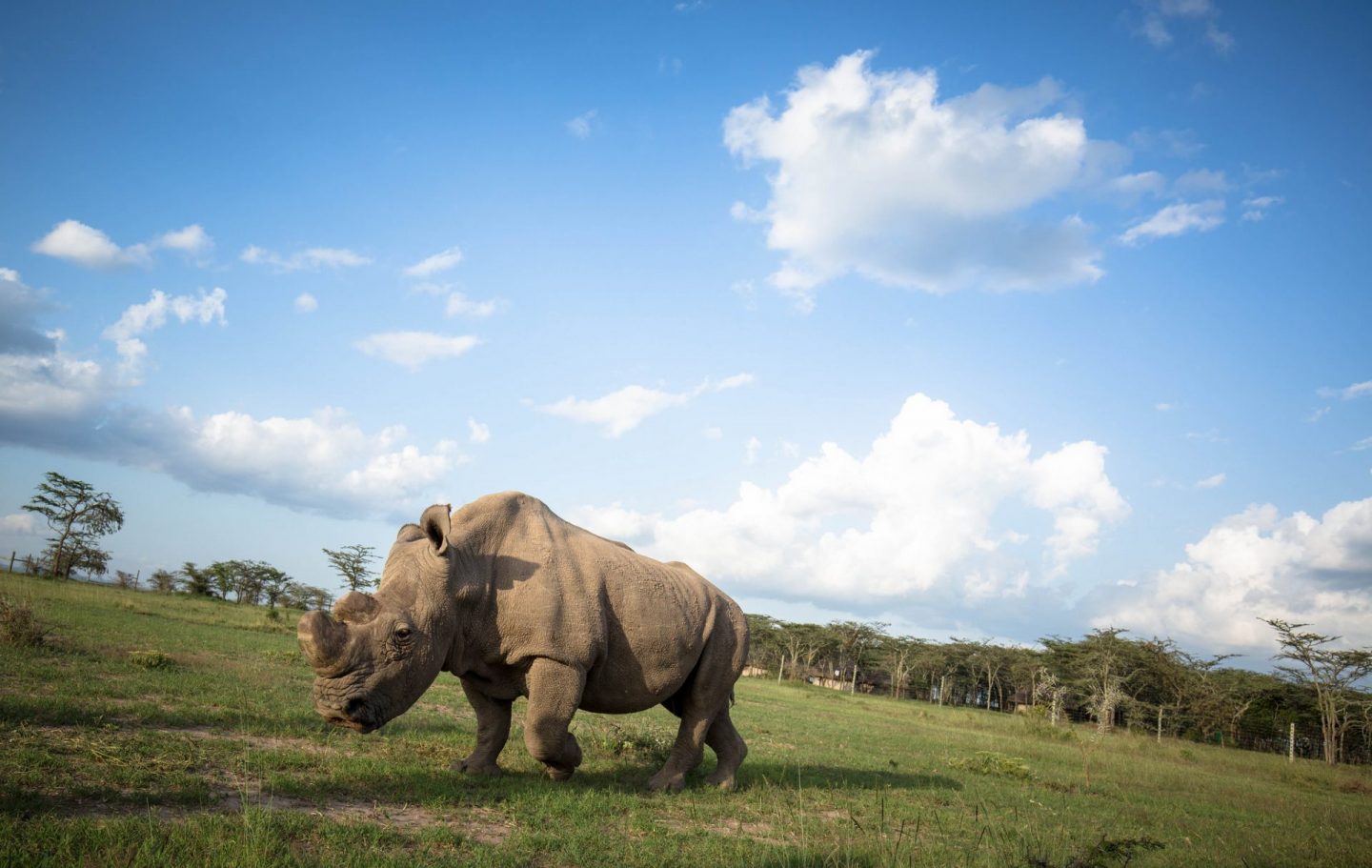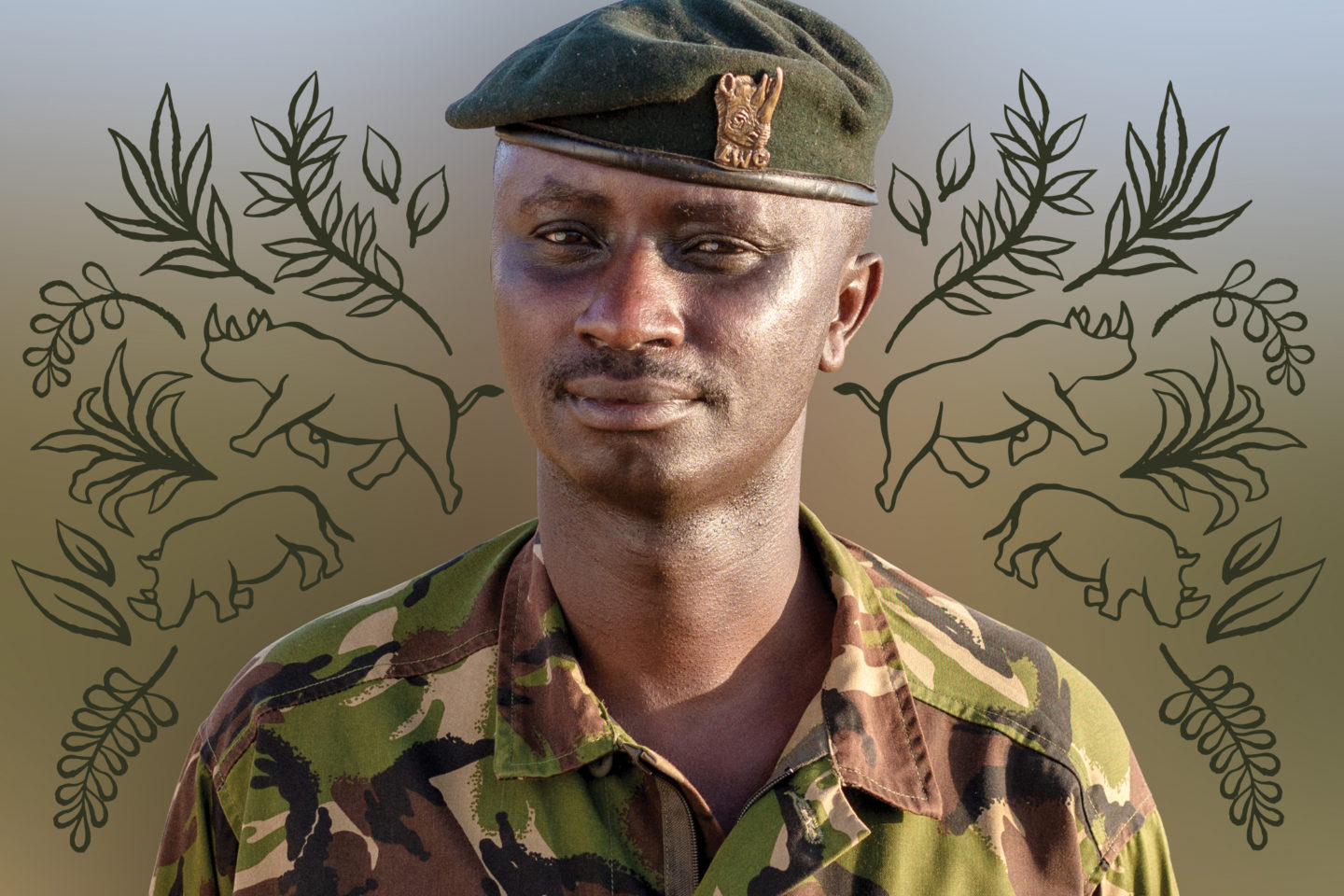
GO TO ENDANGERED FAECES AUCTION
Cotswold Wildlife Park is committed to rhino conservation and works closely with Tusk to help us protect Africa’s many threatened species. Throughout August, Cotswold Wildlife Park hosts its annual rhino conversation fundraising event, Rhino Month, to raise awareness and funds for rhino conservation work in Africa. During Rhino Month, the Park will be highlighting the plight of rhinos in the wild and why conservation work is vital for their future.
This year, for the first time, a ‘money-can’t-buy’ gilded rhino dropping is being auctioned off for charity. All proceeds from the sale of this gold-leafed rhino dung will go to Tusk. The dropping came from one of the Park’s Rhino calves. The gold leaf was applied by professional gilder JoJo Hull and the process is known as oil gilding with 23.75 karat Italian gold leaf.
Simon Cowell has visited Cotswold Wildlife Park with his family a few times over the last year but on this occasion, he was invited to meet the Park’s Rhinos ahead of Rhino Month, and generously started the bidding on the golden rhino dung at £2,500.
If you would like to bid on this unique conservation piece, you will have until Tuesday August 31st, 12pm to place your bid.

The Man with the Golden Dung : Britain’s Got Talent Simon Cowell and Jamie Craig, Curator, with 23.75 karat Italian gold leaf Rhino poo at the Cotswold Wildlife Park on Tuesday 18th July 2023 © Paul Nicholls
The proceeds from the endangered faeces auction will allow us to continue supporting our project partners safeguarding habitats and wildlife – including rhino – though anti-poaching initiatives across Africa.
With rhinos currently experiencing mixed fortunes across Africa, it is vital that we keep raising awareness and funds to help those on the front-line of rhino conservation. Last year, a number of reports across Africa shone a varied account on the state of rhino populations. While some countries experienced an increase in poaching numbers, such as Namibia – whose rhino poaching numbers nearly doubled from 2021-2022 – Kenya achieved zero poaching incidents for the second time in five years!

Mother Nancy with new calf Queenie, at Cotswold Wildlife Park © Rory Carnegie
The most recent figures from South Africa’s rhino population, which includes almost half of the Black Rhino population in the world and the largest population of White rhinos, reveals that already 231 rhinos were killed in South Africa within the first six months of 2023. These numbers are incredibly high, despite being lower than the first six months of 2022, and if this rate continues throughout the year then more rhinos could be lost this year than last.
Cotswold Wildlife Park is one of the largest zoological collections in the UK, with over 1,500 animals from 250 different species. The park has three adult rhinos Monty, Nancy and Ruby who were all born in 2006. Monty and Nancy have had five breeding successes together, with their first (and the park’s first) calf being born in July 2013 – named Astrid. The latest addition to the park’s rhino family is Queenie, who was born in January 2023 and is the park’s ninth white rhino calf.



